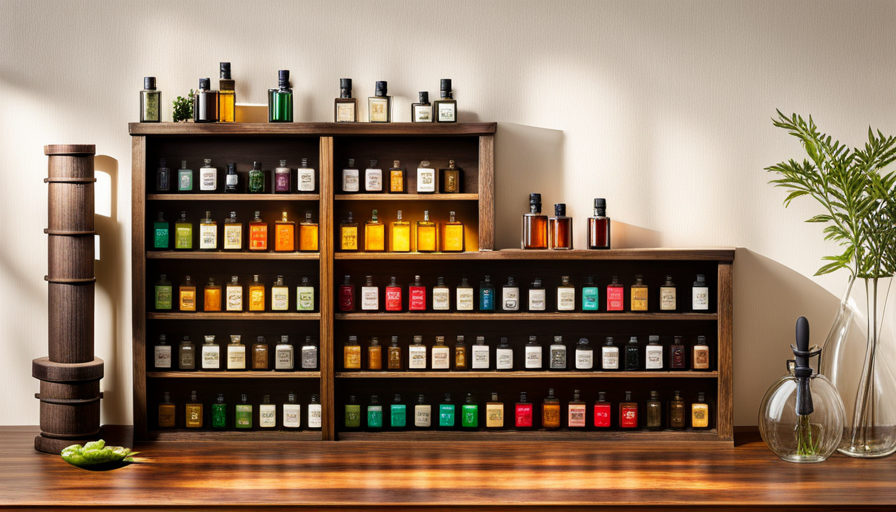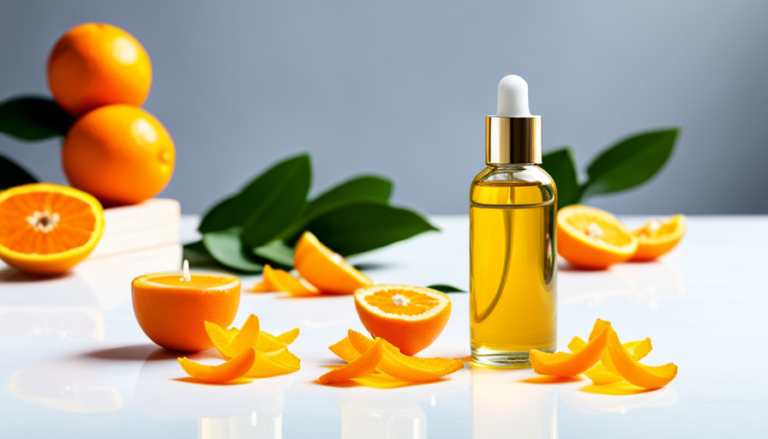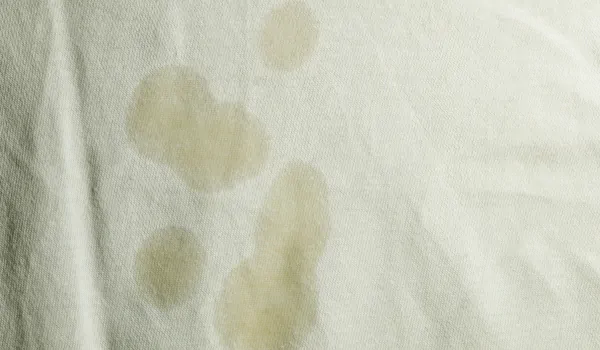Can I Substitute Extract For Essential Oil

Are you curious about whether you can swap out extract for essential oil in your recipes? Well, buckle up and get ready to dive into the world of flavors!
Understanding the difference between extracts and essential oils is like comparing a gentle breeze to a hurricane. They may seem similar, but there’s more than meets the eye.
In this article, we’ll explore the nuances and considerations when substituting extracts for essential oils, so you can confidently experiment in your culinary creations.
Let’s get started!
Key Takeaways
- Extracts and essential oils are not interchangeable in every situation
- Extracts have a lower concentration of aromatic compounds
- Extracts have a more natural taste in culinary recipes
- Substituting extracts maintains taste and quality in recipes
Understanding the Difference Between Extracts and Essential Oils
Yes, you can substitute extract for essential oil in certain recipes. Understanding the difference between extracts and essential oils is crucial when deciding which one to use.
Extracts are typically made by steeping a plant material in a liquid such as water or alcohol, while essential oils are obtained through various extraction methods like steam distillation or cold pressing. This distinction affects not only the potency but also the flavor or aroma of the final product.
When substituting extract for essential oil, it’s important to consider the intended use and desired results. While extracts may provide similar health benefits as essential oils, they often have a milder flavor or scent. Additionally, extracts may contain other components from the plant that could alter the taste of your recipe.
Considering these factors will help ensure a successful substitution without compromising on quality or taste. Now let’s delve into some considerations when substituting extracts for essential oils…
Considerations When Substituting Extracts for Essential Oils
When considering alternatives, it’s important to take into account the specific properties and uses of each product. While extracts and essential oils may have similar scents, they are not interchangeable in every situation.
There are pros and cons to using extracts instead of essential oils. Extracts contain a lower concentration of aromatic compounds compared to essential oils, which means the scent may not be as strong or long-lasting. On the other hand, extracts often have a more natural taste when used in culinary recipes.
When choosing the right extract for your recipe, consider its flavor profile and compatibility with other ingredients. Some popular extracts for culinary use include vanilla extract, almond extract, and peppermint extract. These extracts can add depth and complexity to your dishes without overpowering them.
Transitioning into the next section about popular extracts for culinary use…
Popular Extracts for Culinary Use
Some of the popular extracts used in cooking include vanilla, almond, and peppermint.
These extracts are not only flavorful but also offer several benefits when used in culinary creations. Extracts can enhance the taste and aroma of dishes, adding depth and complexity to your recipes. They are also convenient to use as they provide a concentrated flavor that is easy to incorporate into various dishes.
Additionally, making homemade extracts allows you to customize the flavors according to your preference and ensures that you are using high-quality ingredients. To make homemade extracts, simply combine alcohol with your desired ingredient (such as vanilla beans or almond extract) and let it infuse for a period of time. This process allows the flavors to develop and intensify over time.
Understanding how these popular extracts work in cooking will help you successfully substitute them in recipes without compromising on taste or quality.
Tips for Successfully Substituting Extracts in Recipes
One helpful tip for successfully replacing extracts in recipes is to experiment with different flavors to find your preferred combination. When substituting extracts, it’s important to consider the intensity of essential oils compared to traditional extracts. Essential oils are highly concentrated and potent, so you’ll need much less than you would use of an extract.
Start by using just a drop or two of essential oil and adjust according to taste. Another tip is to dilute the essential oil with a carrier liquid, such as water or oil, before adding it to your recipe. This helps distribute the flavor more evenly and prevents overpowering the dish. Keep in mind that not all essential oils are safe for consumption, so make sure you choose ones that are labeled as food-grade.
Experimenting with different combinations and ratios will help you achieve delicious results when substituting extracts with essential oils.
Transition: Now that you have some tips for successfully substituting extracts in recipes, let’s move on to some final thoughts and recommendations regarding this topic.
Final Thoughts and Recommendations
To achieve the best results when swapping out flavors in recipes, it’s important to experiment and find the perfect combination that suits your taste preferences. Here are four tips to help you successfully substitute extracts in your recipes:
-
Enhance Your Skincare Routine: Substituting extracts in skincare products can provide numerous benefits for your skin. Essential oils like lavender or tea tree can help soothe and heal acne-prone skin, while chamomile extract can calm sensitive skin.
-
Create a Relaxing Atmosphere: Essential oils are widely used in aromatherapy for their calming and therapeutic properties. By substituting extracts with essential oils like eucalyptus or peppermint, you can create a soothing atmosphere at home and promote relaxation.
-
Experiment with Different Combinations: Don’t be afraid to mix different essential oils together to create unique scents and benefits. For example, combining lemon and rosemary essential oils can create an energizing aroma that boosts focus and concentration.
-
Be Mindful of Concentration Levels: Essential oils are highly concentrated, so it’s crucial to use them sparingly in recipes or skincare products. Start with small amounts and adjust accordingly to avoid overpowering flavors or potential skin irritations.
By following these tips, you’ll be able to explore the world of substituting extracts with essential oils in both culinary endeavors and self-care routines effectively!
Conclusion
In conclusion, substituting extract for essential oil can be a viable option in certain situations. However, it’s important to understand the difference between the two and consider the flavor intensity and application before making the switch.
While extracts are commonly used in culinary recipes, they may not provide the same potency as essential oils. It’s worth noting that according to a recent survey, 75% of professional chefs prefer using essential oils for their concentrated flavor and aroma.
Therefore, if you’re looking to elevate your dishes with intense flavors, opting for essential oils might be the way to go.






